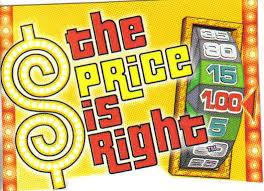
When you sell a Knoxville home, waiting on an offer can take a matter of days, weeks, or sometimes months.
Luckily, with the current market being a seller’s market, you may not be waiting very long. And, you could very well be dealing with multiple offers at the same time.
To many sellers, this can seem like a good problem to have, and it is. Still, evaluating offers in a competitive real estate market isn’t always cut and dry. There is much more to think about than just price.
In this post, we’ll take a closer look at evaluating offers in a competitive market.
Is The Price Right?
Price is hands down the single most important factor when you sell a Knoxville home.
With the current market being a seller’s market, homes are receiving offers at or above list price. Granted, this is if a home is priced competitively and if the home is in overall good condition.
As a seller, when you receive an offer on your Knoxville home, you’ll want to consider if the overall price meets your needs. You’ll want to consider how long your home has been on the market, what other homes are selling for in your area, and what your financial goals are for when you sell your home.
The great thing is that as a seller you have the ability to counter back on price. Whether you receive multiple offers or just one offer, you have the ability to try and get a better price out of the buyer.
It is important to note that just because an offer is better in price, that doesn’t mean that the offer is the best offer. Offers should be evaluated for other factors as well.
Other Concessions
Additional concessions that the buyer is asking for is another thing to think about when you’re evaluating an offer. Even when a buyer makes an offer at list price, if they’re asking for everything under the sun, those items can add up quickly
Some typical things that a buyer will ask for in an offer include the following:
- Seller Paid Closing Costs (the amount can verify based on the loan type and loan amount)
- Home Warranty (anywhere from $300 or more)
- Appliances
- Personal Items (i.e. curtains or other items unique to a home)
Obviously, the concessions a buyer can ask for can add up very quickly. Even if a buyer offers full price, if they ask for $6,000 in closing costs, that can add up quickly. You may opt to consider another offer if another buyer offers a little less but doesn’t ask for closing costs.
Financing Or Cash
It can make a big difference whether a buyer decides to pay cash for a home or if he or she needs to get some type of loan.
Cash transactions tend to go smoother than those with financing. In a cash transaction, a buyer doesn’t have to jump through all the hoops that are required by a lender. All you need to verify if a buyer can buy a home is a proof of funds letter that states they have enough money to purchase your home. Cash transactions are also able to close much quicker than those that get a loan.
Still, a vast majority of home sales tend to have some form of financing involved. As a seller, you’ll just want to make sure that a buyer is pre-approved (you should receive this with the offer anyhow). In addition, you may want to check and see if the seller is using a reputable lender.
In some cases, to make the transaction easier, some sellers will consider a cash offer over one that involves financing, even if the offer is a little bit less.
Earnest Money
Earnest money is another thing to look at when you’re evaluating an offer. True, earnest money isn’t going to be a deal breaker or maker, but it does matter.
Earnest money is the money a buyer puts down when they make an offer on a house. Depending on the price of the home, the earnest money is usually $500 or $1,000. This is the money that a buyer would forfeit should a buyer decide to walk away from a transaction for any reason that is not outlined in the contract.
Earnest money is important for the reason that is shows a buyer’s seriousness. It’s a lot easy to walk away from $500, but a lot more difficult to walk away from $5,000.
Contingencies
Contingencies are another important thing to look at when you’re evaluating an offer. A contingency is something that must happen in order for a deal to move forward.
A typical contingency that you see in many real estate contracts is the purchase being contingent on the sale of buyer’s home. While you shouldn’t flat out refuse an offer that is contingent on the sale of a home, it’s important to fully evaluate this situation. If you have another offer on the table that doesn’t have this contingency, you may want to consider it even if the asking price is slightly less. Some sellers don’t want to deal with the headache of having a contract contingent on the sale of another property.
Not all contingencies are bad in a real estate contract. You’ll typically see a financing and inspection contingency included in many offers.
Close Date 
The close date is another thing that can be important to a seller. This doesn’t hold as much weight as some of the other items included in an offer, but it still does matter.
Some sellers want to close as quickly as possible so they can move on with their lives. While others may need a little time to find a home or to find temporary housing.
Depending on your situation, this could play an important role for you as the seller. If a buyer isn’t willing to be flexible or is giving you a close date 3 months out, you may consider a different offer. Waiting an extra month or two can cost you money as you’ll have to make those additional mortgage payments. In that case, you may consider a lesser offer for a closer close date.



